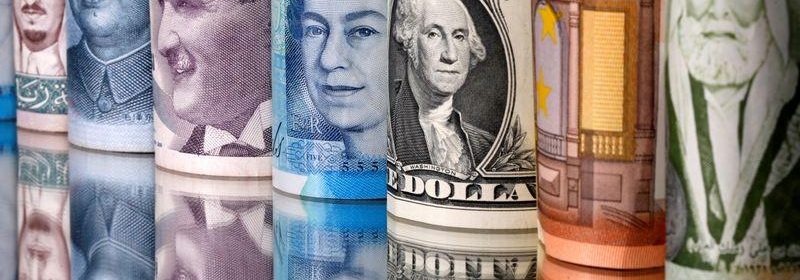Dollar index headed toward biggest weekly gain since April

NEW YORK/LONDON (Reuters) – The dollar continued to rebound on Friday as traders tidied positions for month-end and new data largely confirmed expectations about inflation and the strength of the U.S. economic recovery.
The dollar index of major currencies rose 0.3% to 90.236 and a gain of nearly 1% from four-and-a-half month lows plumbed on Tuesday.
The index is on track for its biggest weekly advance since the end of April.
The turnabout came after the dollar index had lost about 3% since March as other major economies began to catch up with vaccination rates in the United States. At the same time, central banks in some other countries appeared likely to move more quickly than the U.S. Federal Reserve in backing away from easy money policies.
The euro was down 0.3% at $1.216, compared with a four-month high of $1.2266 earlier in the week.
The British pound fell 0.3% to $1.416, having struggled around $1.42 earlier this week..
On Monday the United States and Britain have public holidays.
The U.S. economic data had been seen as the big scheduled news of the week, but did not move bond and stock markets dramatically in the morning when it was released. It showed that consumer prices increased in April far beyond the Federal Reserve’s 2% annual rate target.
The dollar continued to gain on the Japanese yen, hitting a seven-week high and rising 0.2% on the day to 110.02. Reasons for the yen weakness, analysts said, include Japan’s rise in unemployment, falling consumer prices and government moves to extend emergency restrictions in Tokyo and other areas because of the COVID-19 pandemic.
China’s onshore yuan hit a new three-year high and traded around 6.37 versus the dollar.
Kenneth Broux, FX strategist at Societe Generale, said the fact that the yuan has been stronger than 6.40 for three days could be a turning point in Chinese policy that would be positive for the global economy.
“Nobody thought that the central bank would allow the yuan to strengthen beyond 6.40, and they have,” Broux said.
The New Zealand dollar, which this week had jumped on the prospect of an interest rate hike by September 2022, fell as much as 1% against the greenback early in the day..
In cryptocurrencies, bitcoin was down about 5% at $36,682 in the morning in New York, while ether was down 7% at around $2,561.
Source: Read Full Article
